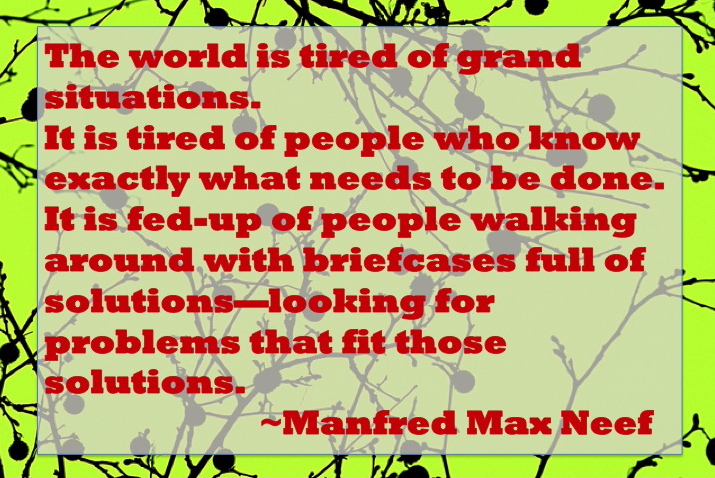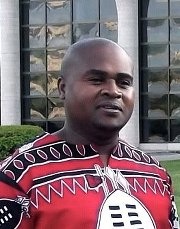A guest post by Clement Dlamini
Helping professions, by design, were meant to be some kind of temporary relief to people who are in positions of vulnerability. In my field of social work, we employ an empowerment approach in the intervention process, such that we intend for individuals receiving welfare support to be better off than before they were enrolled. This is the very reason I fell in love with the profession and daily why I look for ways of to improve the lives of individuals and families.
 Applying my skill set as a social worker while working in international development has had me asking a lot of questions where this issue is concerned. Our emergency response approach to development seems to be our main undoing, as we seem to run around fighting fires, rather than making means to empower our citizens to be able to stand on their own to prevent or stop these fires.
Applying my skill set as a social worker while working in international development has had me asking a lot of questions where this issue is concerned. Our emergency response approach to development seems to be our main undoing, as we seem to run around fighting fires, rather than making means to empower our citizens to be able to stand on their own to prevent or stop these fires.
I sometimes ask myself why would a country so endowed with natural resources and beautiful mountainous landscapes and that is deeply in love with its cultural heritage, linger in poverty? Sixty three percent (63%) of my country of Swaziland lives in poverty (SHIES, 2010). Is it really because we cannot fight the scourge of poverty? Or is it because our current situation draws us international attention and external resources to continue receiving grants and favors from donors and other nations? What is it that we are missing and not doing right? I have written in the past about community resilience, people-driven development, aid effectiveness, etc. and still I have no solution in my mind for Swaziland or other countries in a similar situation.
I have watched with interest civil society (myself included) designing activities together with communities, which, we believed would be best practice and set the tone for widespread development that will pull communities out of the cycle of poverty and mediocrity. Some interventions have worked wonders and have led to innovation in communities that are continuing to sustain them and improve their livelihoods. But this is not the norm. Most interventions end as soon as the donor pulls out, then activities begin to slow down and people return to vulnerability.
If someone helps me during a time of vulnerability, there is this tendency to make that individual a savior of some sorts, such that I believe helplessness is the way into the heart of the savior. This has led me to the conclusion that vulnerability can naturally lead to dependency. No matter the amount of effort a practitioner puts into empowering communities, many still want to bask in the comfort of having the development partner close. Unfortunately, the emergency response to poverty or firefighting approach is the very thing that entrenches vulnerability. The cycle keeps repeating itself and it is my deep conviction that we are not doing enough. Rather than being bogged down by vulnerability, we need to start focusing on community strengths, because the more we play into the hands of vulnerability, we lose the plot.
I recently interviewed my fresh men (first year) students on why they had enrolled into the Institute of Development Management. The response from many of them was that they didn’t qualify to go into the local university. Taking it further, I asked why they were studying. The response for the majority of them was, “I need to be employed.” This came as no surprise; even my institution is raising a bunch of graduates that will be thrown into the pit of vulnerability. The reason for this is simple; Swaziland, with a population of slightly above a million, has an unemployment rate of 40% (SDHS, 2007). Current statistics reveal that out of the youth that graduate with diplomas and degrees, 53% are unemployed! Without a robust job market and a cadre of engaged, professional leaders, Swaziland is creating vulnerability and therefore dependency even among its educated people for years to come.
I was once there with the same mentality of studying to be employed. Luckily I found my passion as a social worker cum international development practitioner, and it’s what I will aim to inspire and instill in my students, no matter why they are in my classroom.
To break this vulnerability, Swaziland needs to create a new culture, one that empowers citizens to think outside the box, or better still, pretend there is NO BOX. Developing countries need to employ an asset-based perspective that focuses on harnessing the strengths of all of its people, rather than focusing on their deficits. The question from a tender age should be, “What are you good at?” rather than “What do you need?”
***
Clement N. Dlamini, from the Kingdom of Swaziland, is an International Development Practitioner who is a Social Worker by training and at heart. Clement has 12 years experience working in development with local and international civil society organizations, the U.N., and government and has a Masters in Social Work from the Stephen F. Austin State University in Texas.
Related Posts
The Case of the Missing Tomato Cages
The Marginalization of CBOs by Development Actors: A Perspective from Zimbabwe


Congratulations Clement. I read through your article and have really got an appetite whetting to read more on the subject, as a country we need more of this.
This has also set IDM a cut above the rest.
Congradulation Clement
This is good Mr Clement, this article is brilliant. Keep up the good work.
Very good piece Clement, people drive sustainable projects are the ones that are needed. Fighting fire after fire can never be the solution.
Beautiful piece indeed. Can you give us more of such. Are you publishing it in our Campus Newsletter? Will it appear in our local media?
Thank you for sharing! Sometimes planning for the long-term is the hardest, and most necessary, thing to do.
Tanya I agree with you on planning for long term being the hardest and most necessary thing to do. And I believe its also cheaper for nations as it has long term benefits which are pegged to sustainable development. I watch with interest when we suddenly run helter skelter because of poor planning or no planning at all. Thanks for your comments everyone.